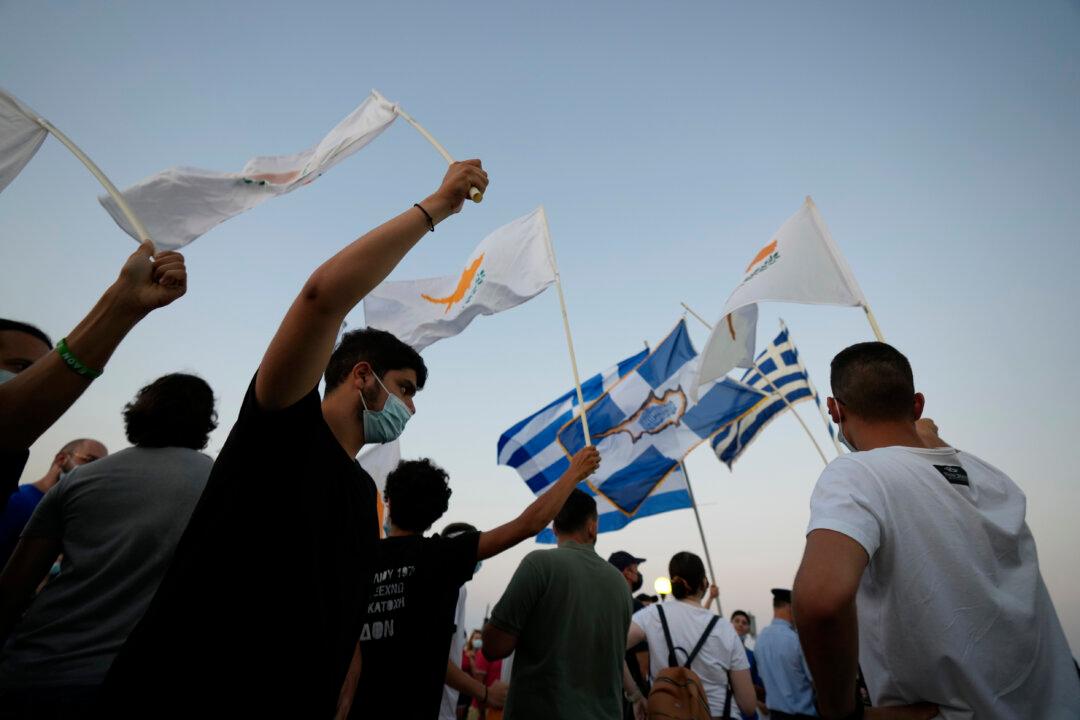PARALIMNI, Cyprus—The government of ethnically split Cyprus lodged formal protests with the United Nations and the European Union on Tuesday over a decision by Turkey and breakaway Turkish Cypriots to reopen a residential section of an abandoned, military-controlled suburb.
Calling the move a veiled bid to acquire more territory that could scuttle peace efforts, the government said the five permanent U.N. Security Council members would be informed about what President Nicos Anastasiades called a contravention of council resolutions prohibiting any change to the coastal area’s status and which call for the return of Varosha to its legal inhabitants.





